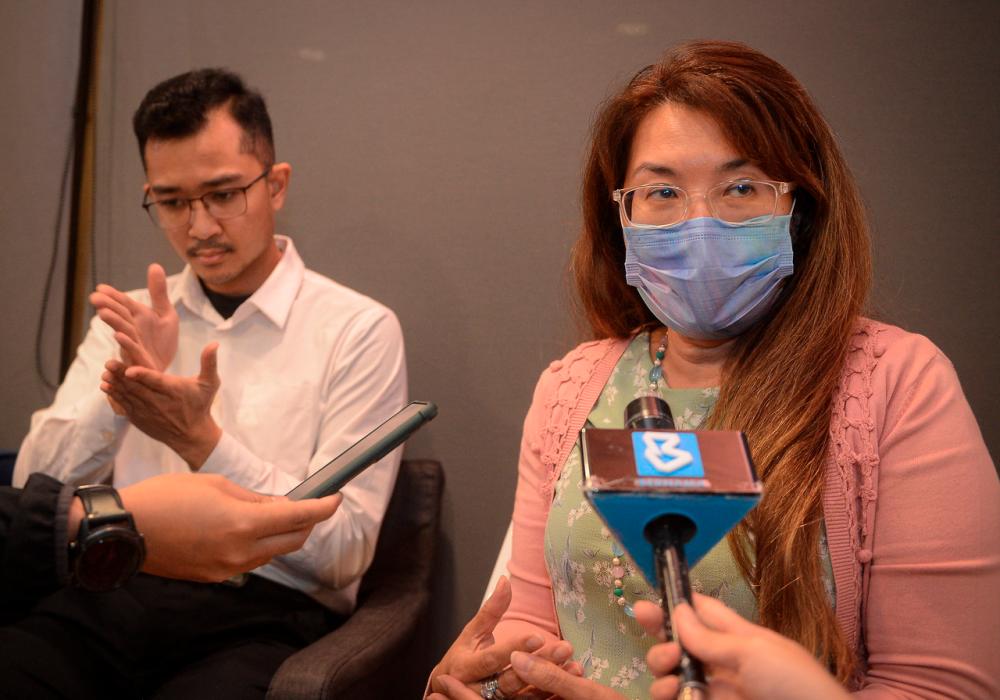KUALA LUMPUR, Feb 13: The Intellectual Property Corporation of Malaysia (MyIPO) has been urged to accelerate and intensify its efforts towards Malaysia’s accession to the Marrakesh Treaty which is aimed at empowering and facilitating access to published works for persons who are blind or partially sighted.
Malaysian National News Agency (BERNAMA) chairman Senator Datuk Ras Adiba Radzi said accession would expedite improvements in three critical ways, namely digital accessibility, accessible publishing and cross-border access to learning materials.
”One, digital accessibility. This would eliminate existing barriers, to enable blind persons to access websites and e-platforms. No longer would blind persons be excluded from performing online functions that are increasingly an essential feature of everyday life.
“Two, accessible publishing. All books for publication would be produced in accessible electronic format.
“Three, cross-border access to learning materials. Malaysians with print disabilities could tap into the libraries of other countries across the world for access to knowledge and information materials.
“This would end the national famine of accessible, up-to-date and rapidly evolving knowledge and information materials,” Ras Adiba said in her speech at the Chinese New Year Musical Evening online concert by children and young adults with visual impairment streamed live via Facebook.
The event was co-organised by the National Council for the Blind Malaysia (NCBM) and the National Family Support Group for Children and People with Special Needs.
The Marrakesh Treaty was adopted by the World Blind Union (WBU) and World Intellectual Property Organisation (WIPO) on June 27, 2013 and came into force on Sept 30, 2016. The treaty is in line with Articles 21 and 24 of the UN Convention on the Rights of Persons with Disabilities.
Signatories to the treaty will enjoy special access to publications in Braille and in large print, audio and digital formats, and other reading materials without the threat of copyright infringements, thus reducing the disparity in access to education for the blind.
Ras Adiba, who is the president of OKU Sentral, a non-governmental organisation that fights for the rights of persons with disabilities, said Malaysians who are blind and visually impaired have the same rights to education, paid work, use of banking services and public transport and having fun in all aspects of life.
She said with both technology and software, all persons with print disability could access knowledge via screen readers, refreshable braille display and speech recognition software.
“NCBM works closely with the Ministry of Education to improve access to learning materials in formats that are accessible for persons who are blind and visually impaired. This includes training in computerised braille production,” she said, adding that a systemic solution requires the active participation of more ministries and government entities.
Earlier, Ras Adiba congratulated the NCBM and the National Family Support Group for Children and People with Special Needs for co-organising the online musical event that was participated by children and young adults with visual impairment in different locations of the country.
A total of seven performers were involved, namely Justin Choy, 9, (piano), Loh Wee Han, 15, (guitar and vocal), Ernest Teoh, 20, (violin), Natalia Lee, 8, (piano), Alan Cheah, 19 (keyboard and vocal), Tan Ee Beng, 27, (Erhu) and Samantha Khoo, 25, (flute, piano and vocal).
Hosted by Wong Yoon Loong from NCBM, the concert aims to create an opportunity for children and young adults with visual impairment to showcase their talents to the public, to create awareness of disability inclusion and to be an entertainment programme for fellow Malaysians during Chinese New Year.- Bernama














